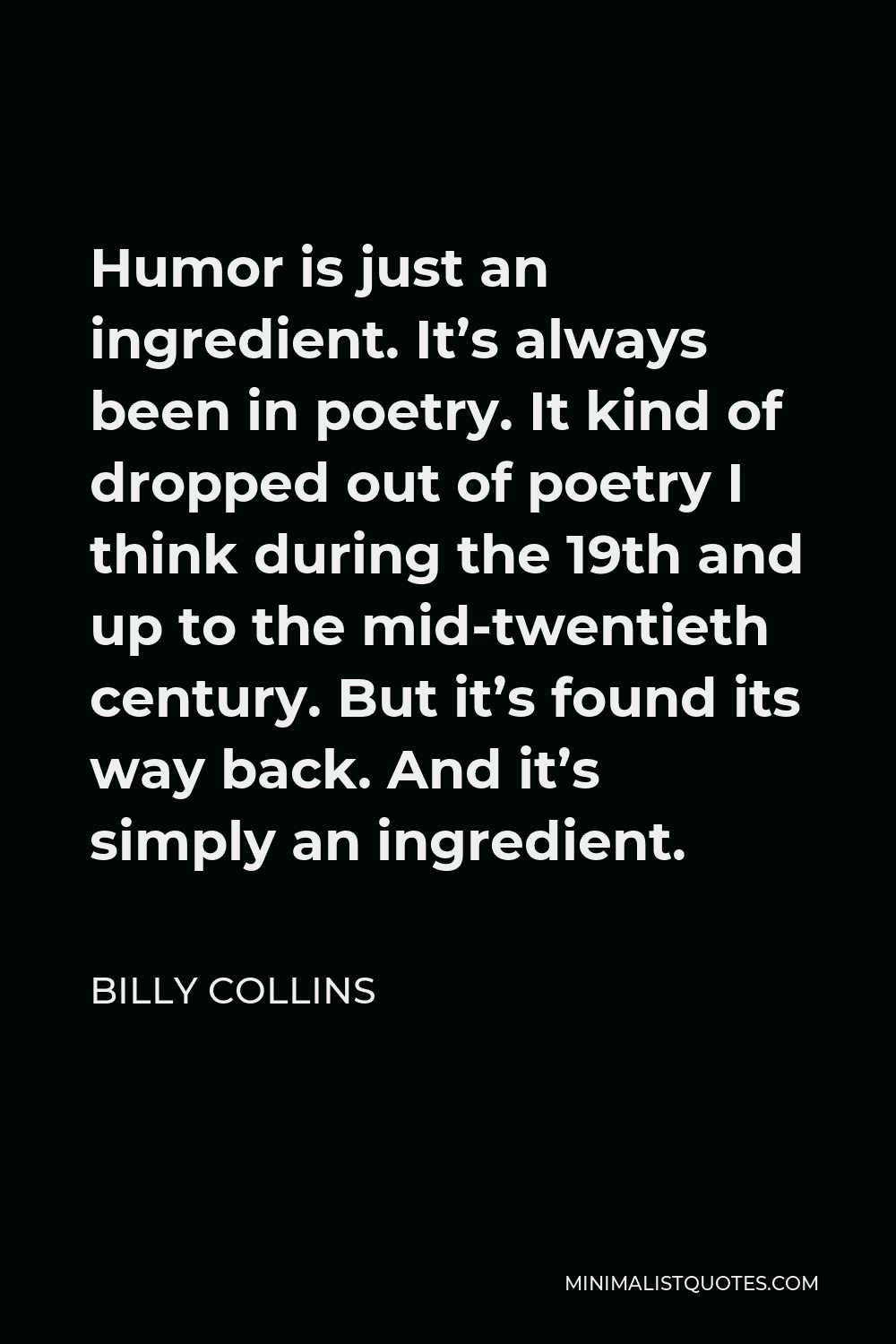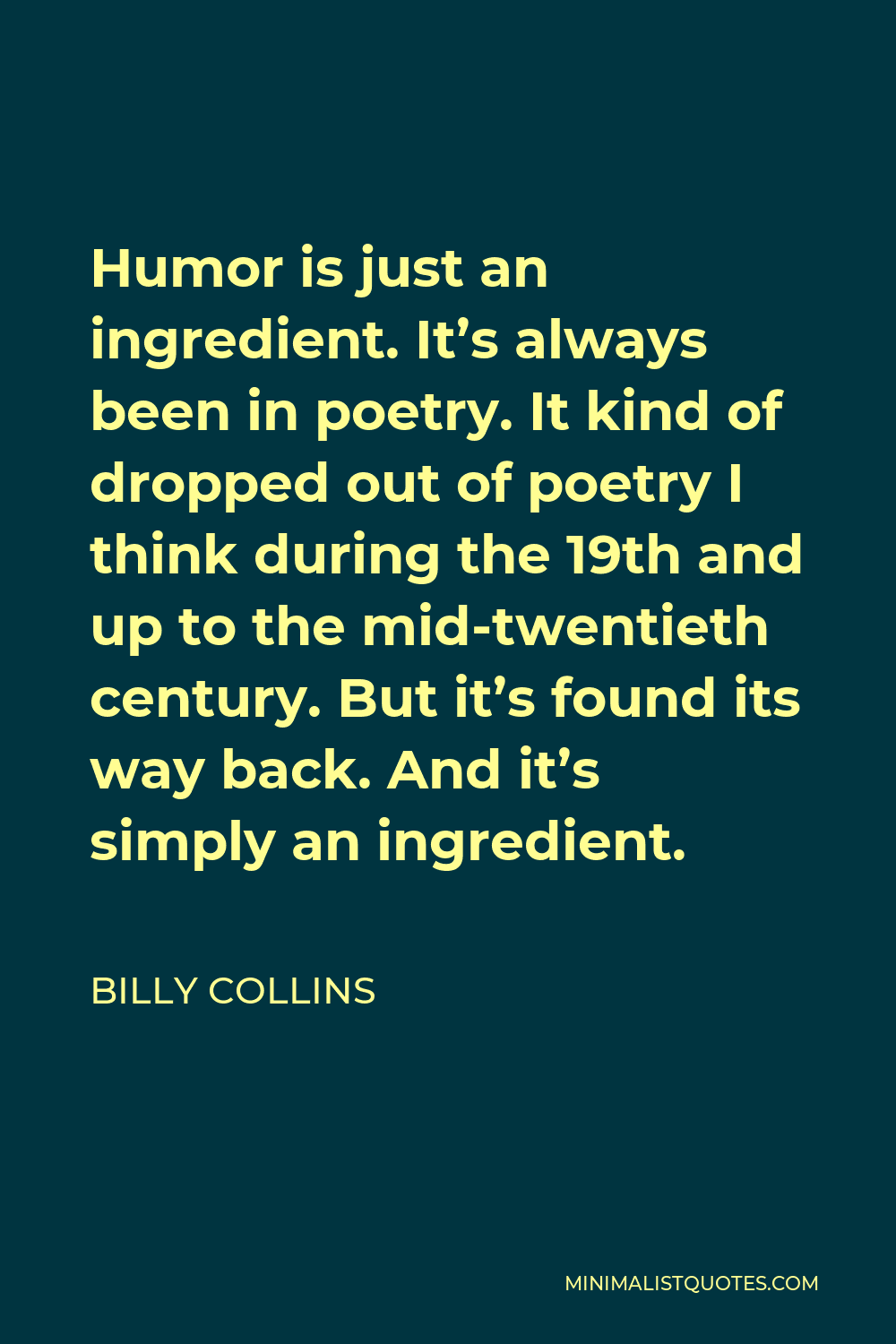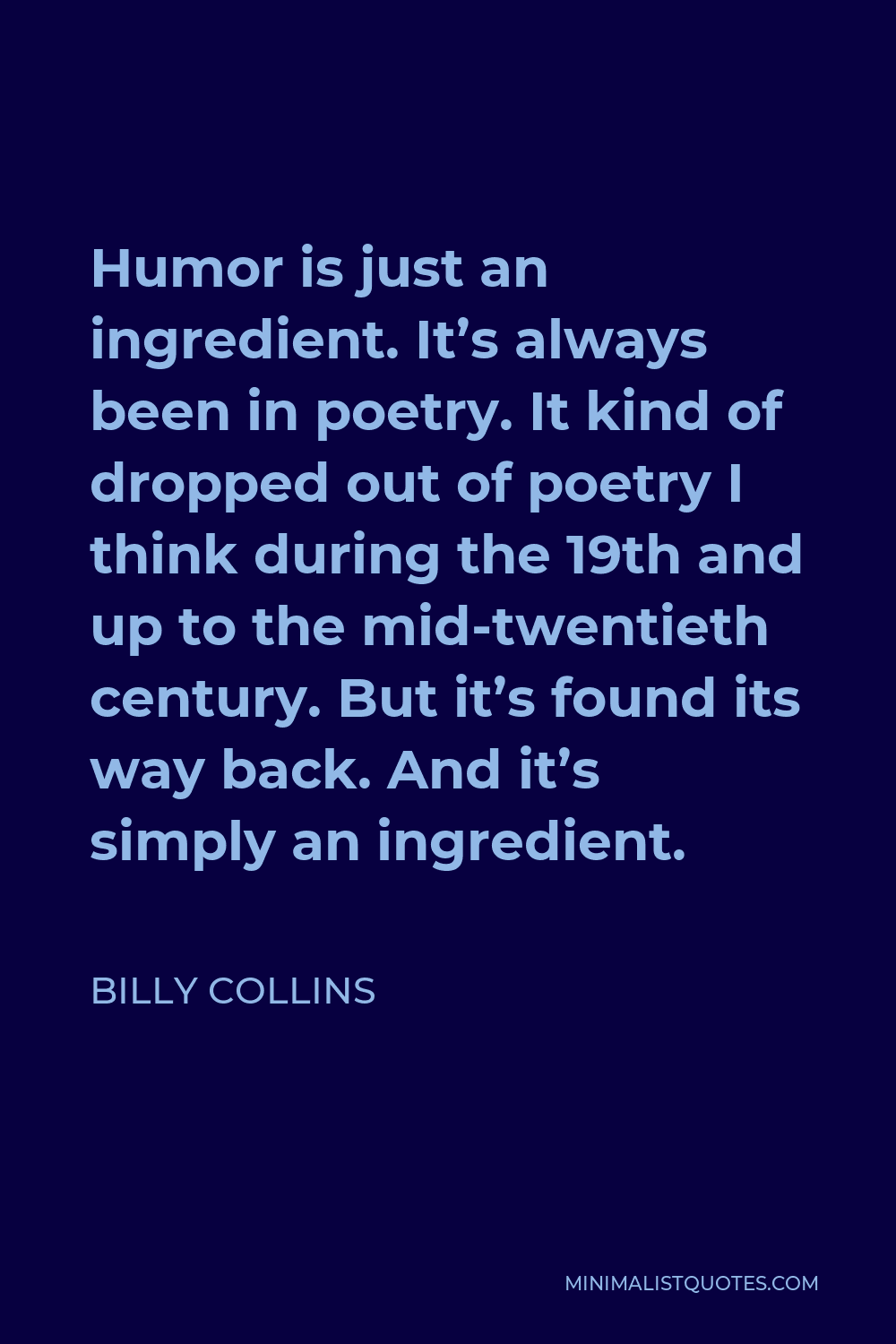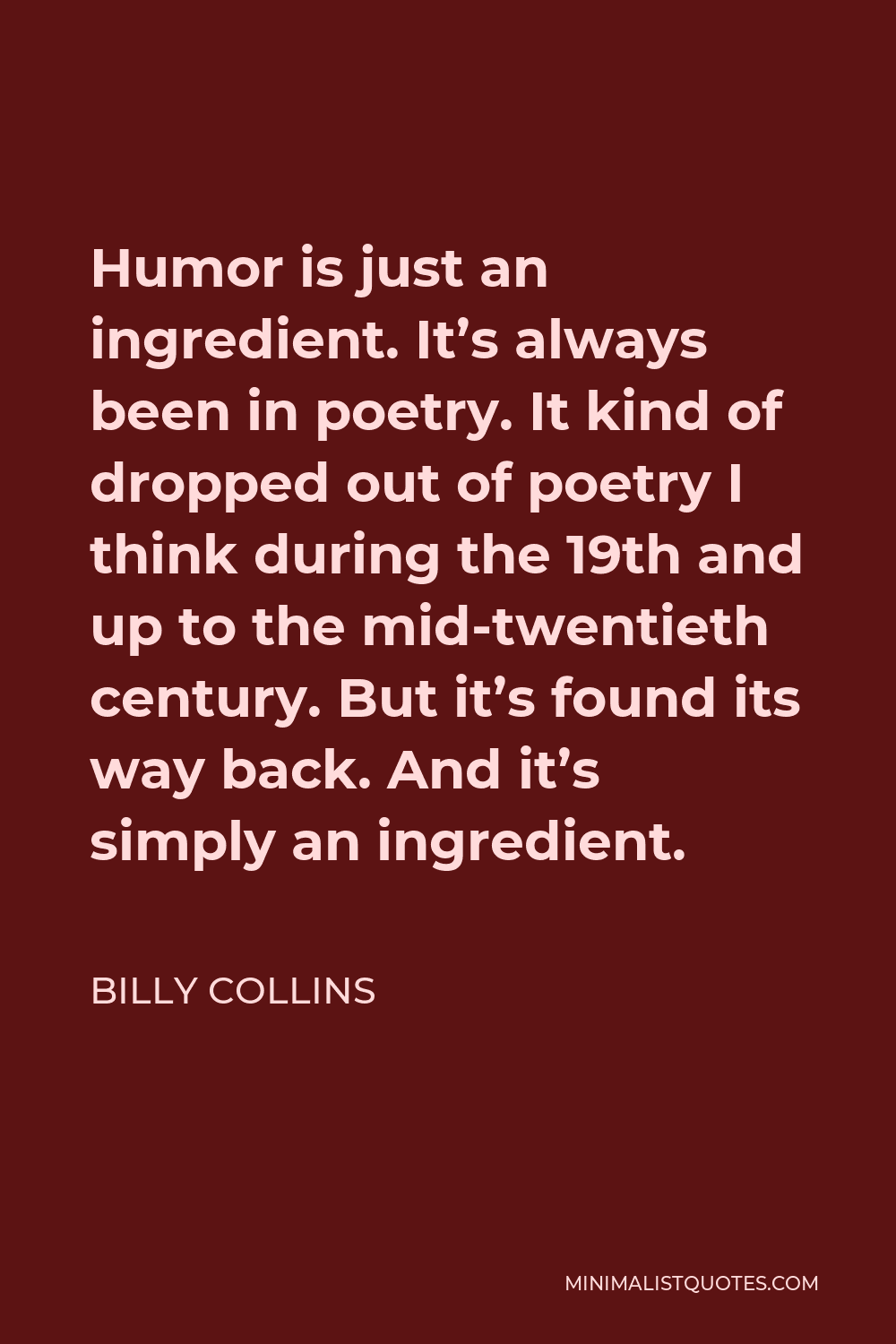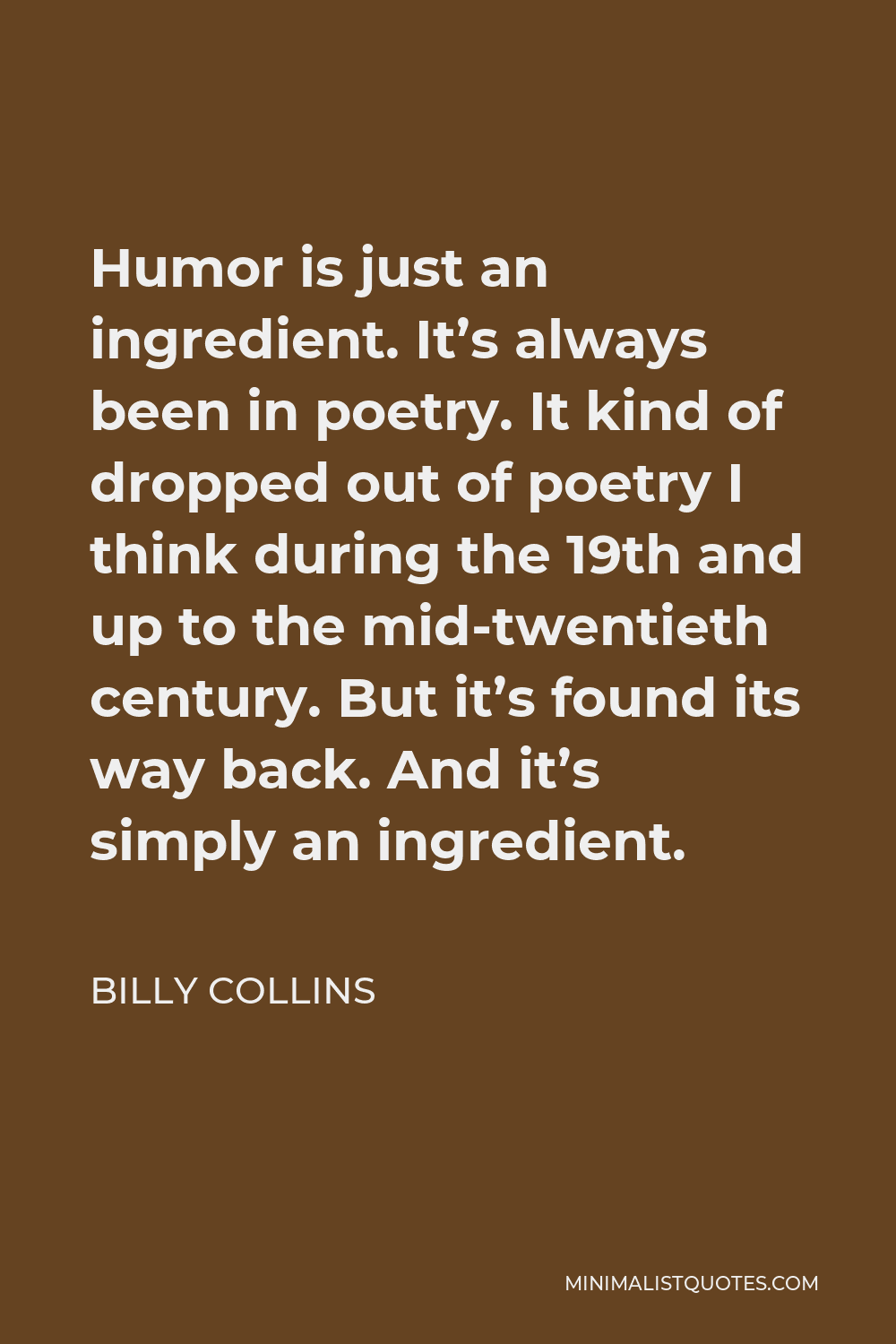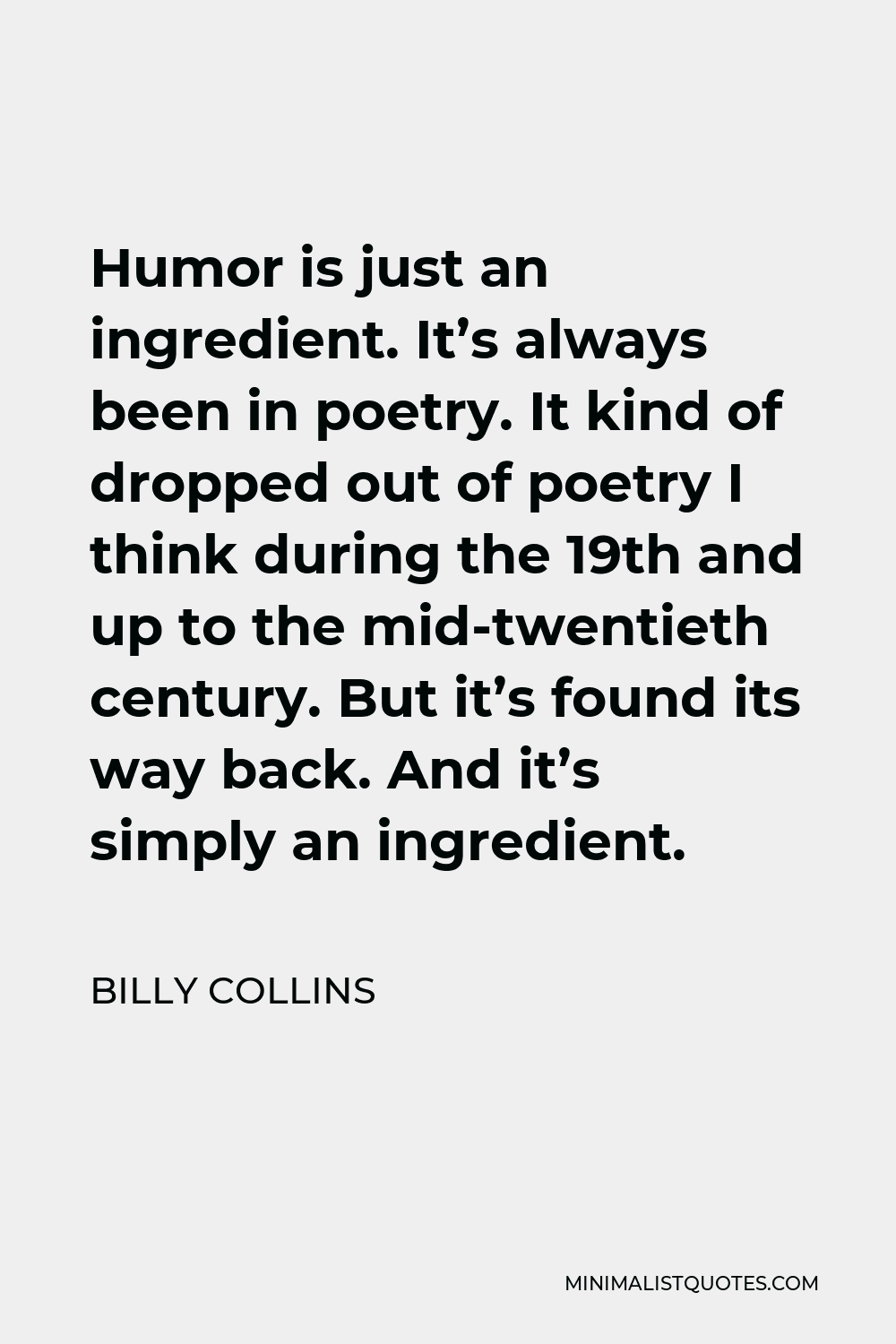I try to presume that no one is interested in me. And I think experience bears that out. No one’s interested in the experiences of a stranger – let’s put it that way. And then you have difficulty combined with presumptuousness, which is the most dire trouble with poetry.
BILLY COLLINSHumor is just an ingredient. It’s always been in poetry. It kind of dropped out of poetry I think during the 19th and up to the mid-twentieth century. But it’s found its way back. And it’s simply an ingredient.
More Billy Collins Quotes
-





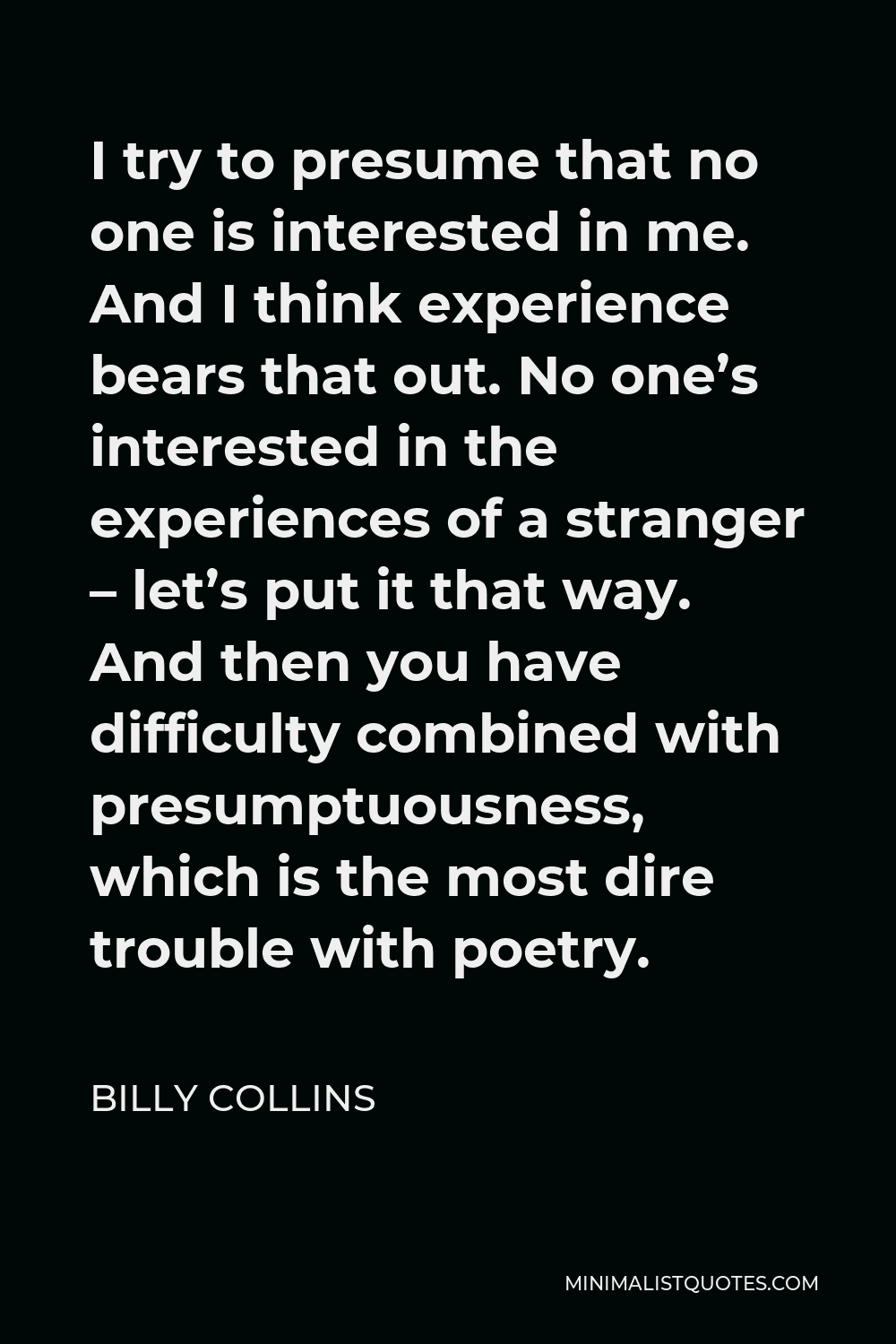
-





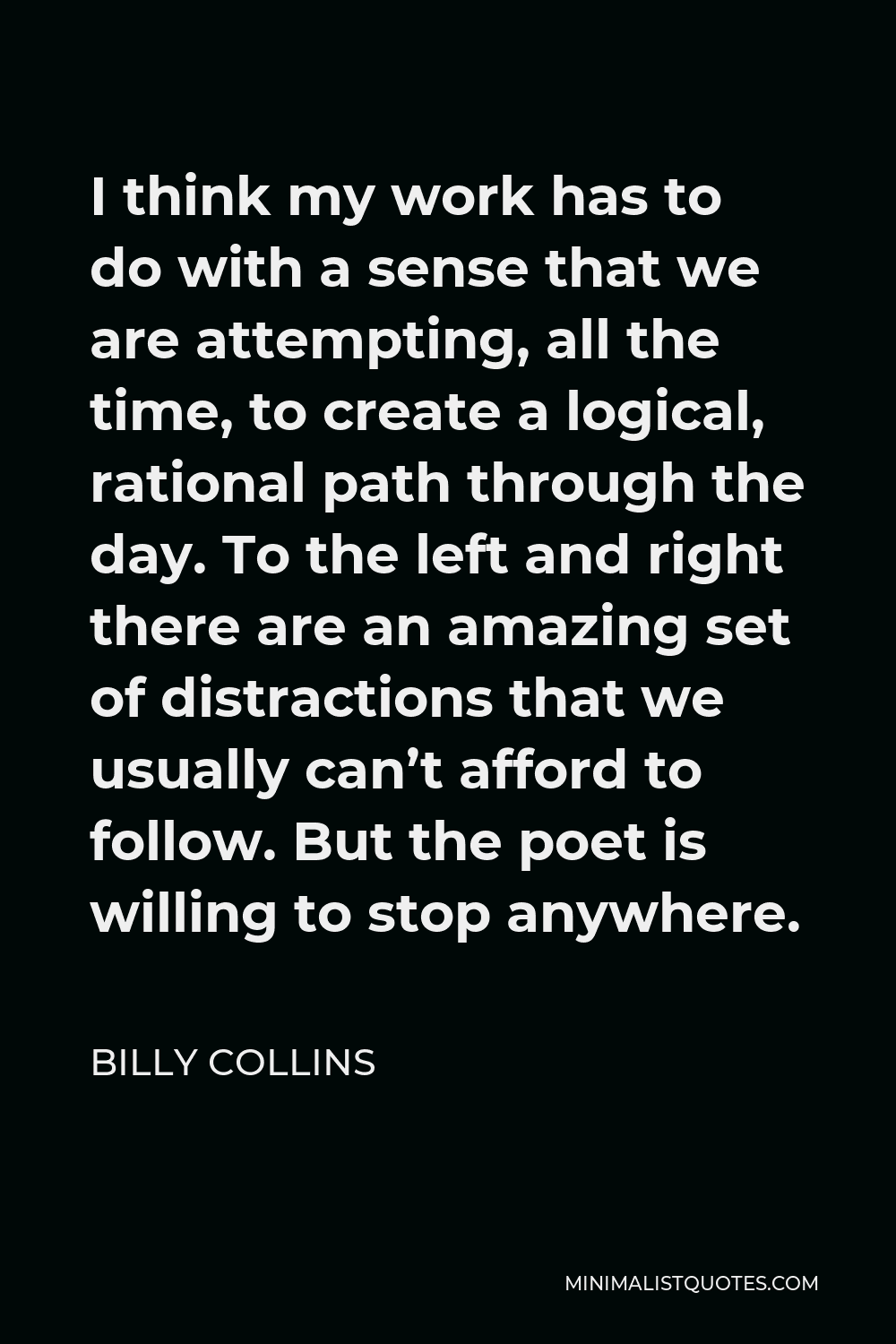
I think my work has to do with a sense that we are attempting, all the time, to create a logical, rational path through the day. To the left and right there are an amazing set of distractions that we usually can’t afford to follow. But the poet is willing to stop anywhere.
BILLY COLLINS -





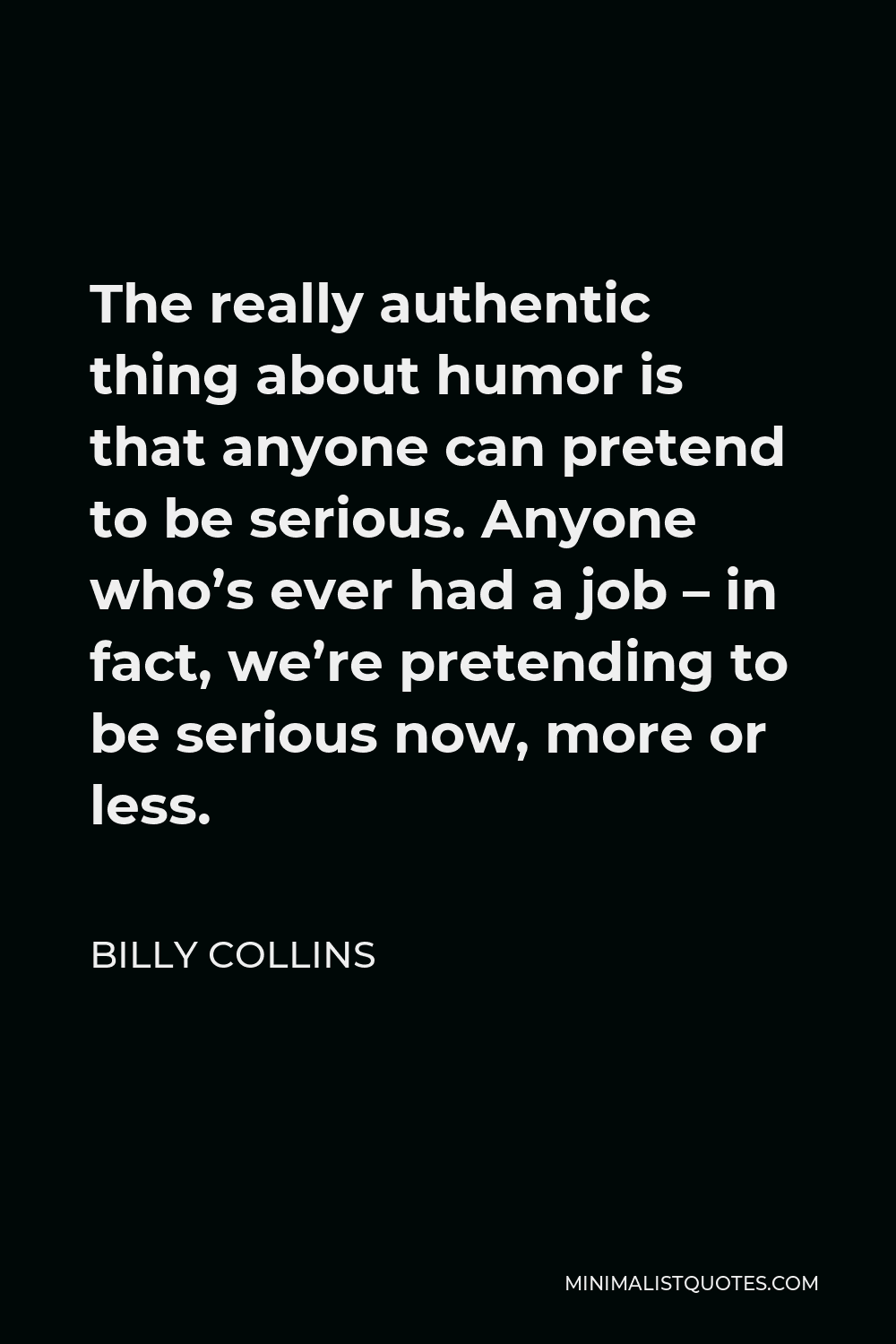
The really authentic thing about humor is that anyone can pretend to be serious. Anyone who’s ever had a job – in fact, we’re pretending to be serious now, more or less.
BILLY COLLINS -





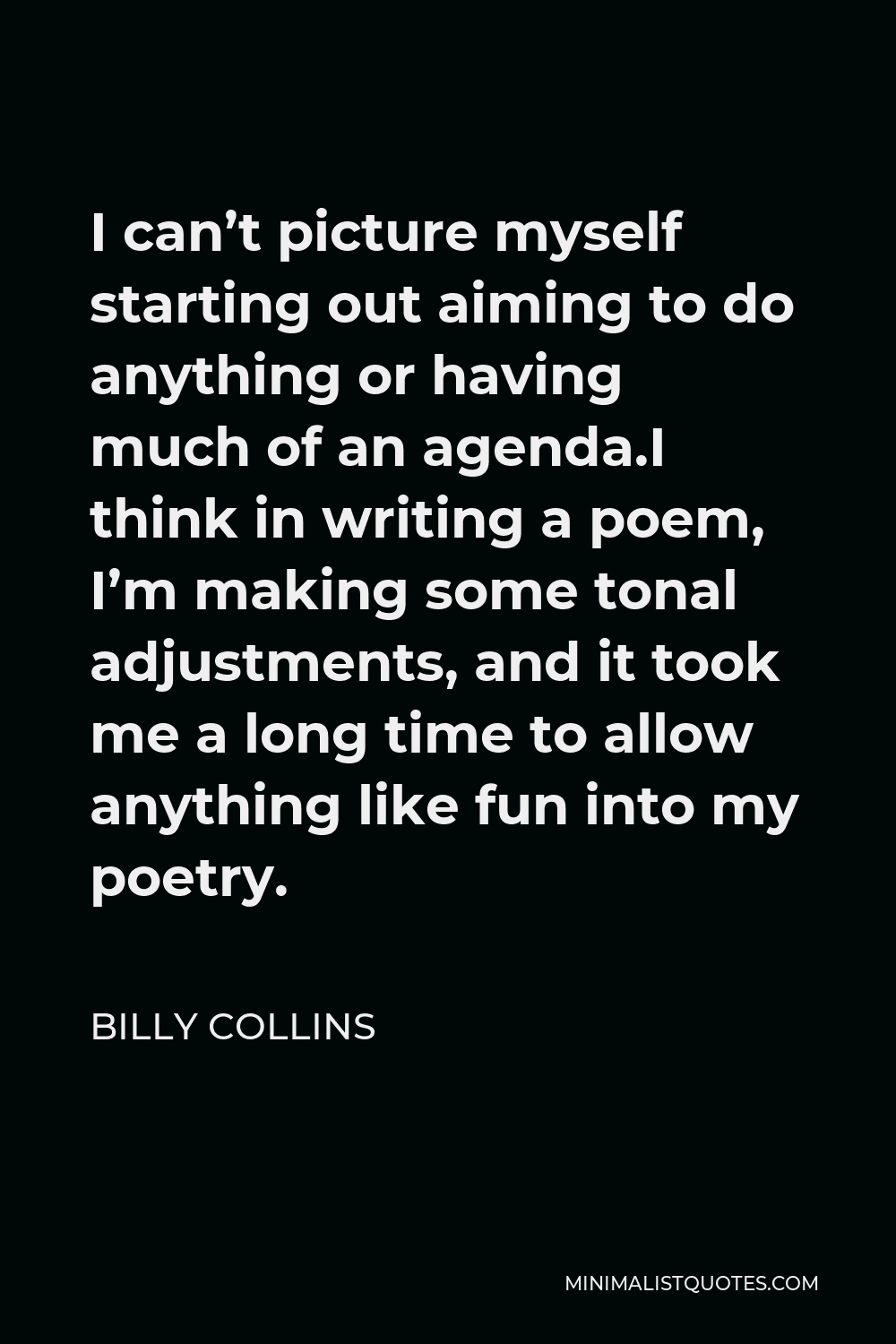
I can’t picture myself starting out aiming to do anything or having much of an agenda.I think in writing a poem, I’m making some tonal adjustments, and it took me a long time to allow anything like fun into my poetry.
BILLY COLLINS -





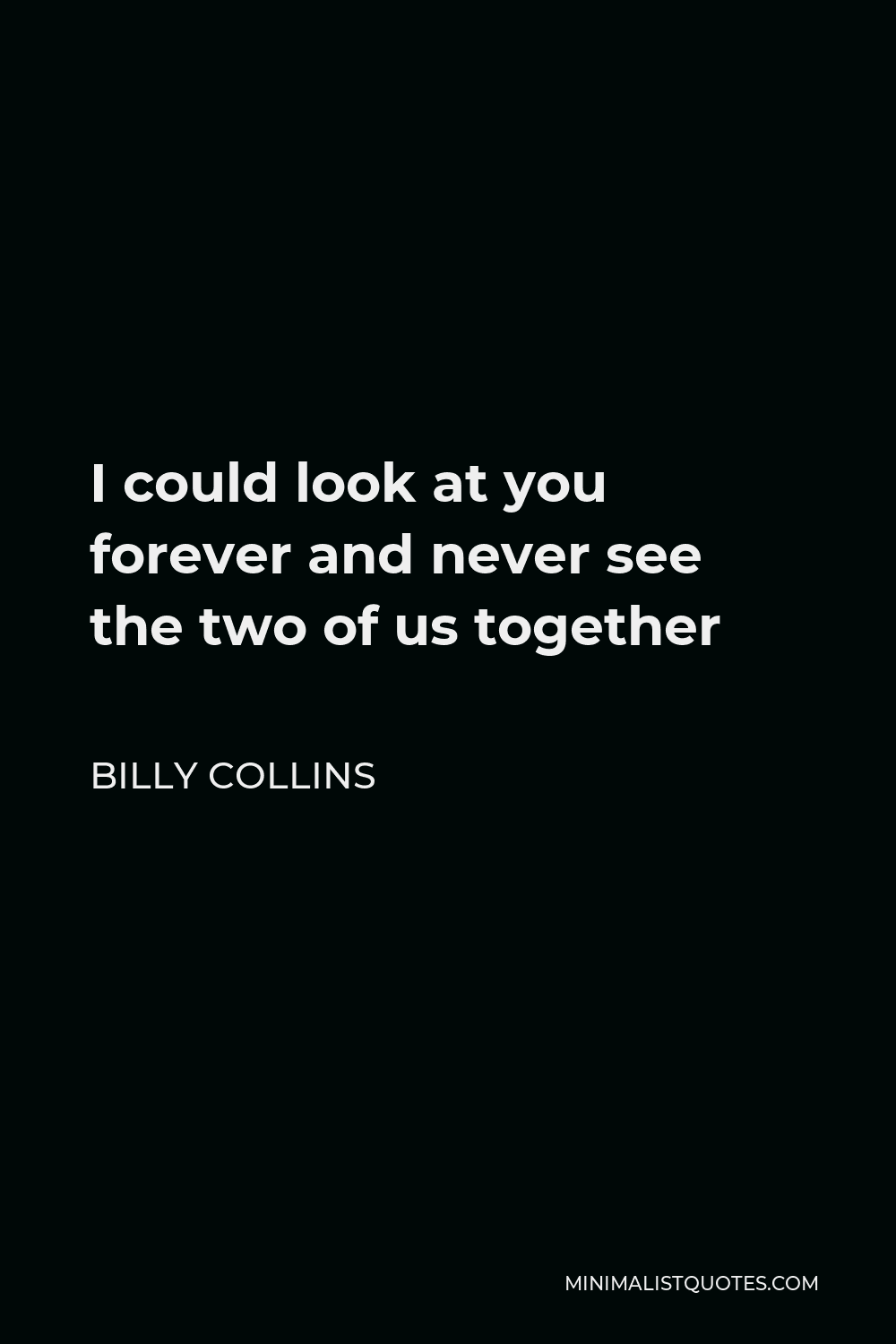
I could look at you forever and never see the two of us together
BILLY COLLINS -





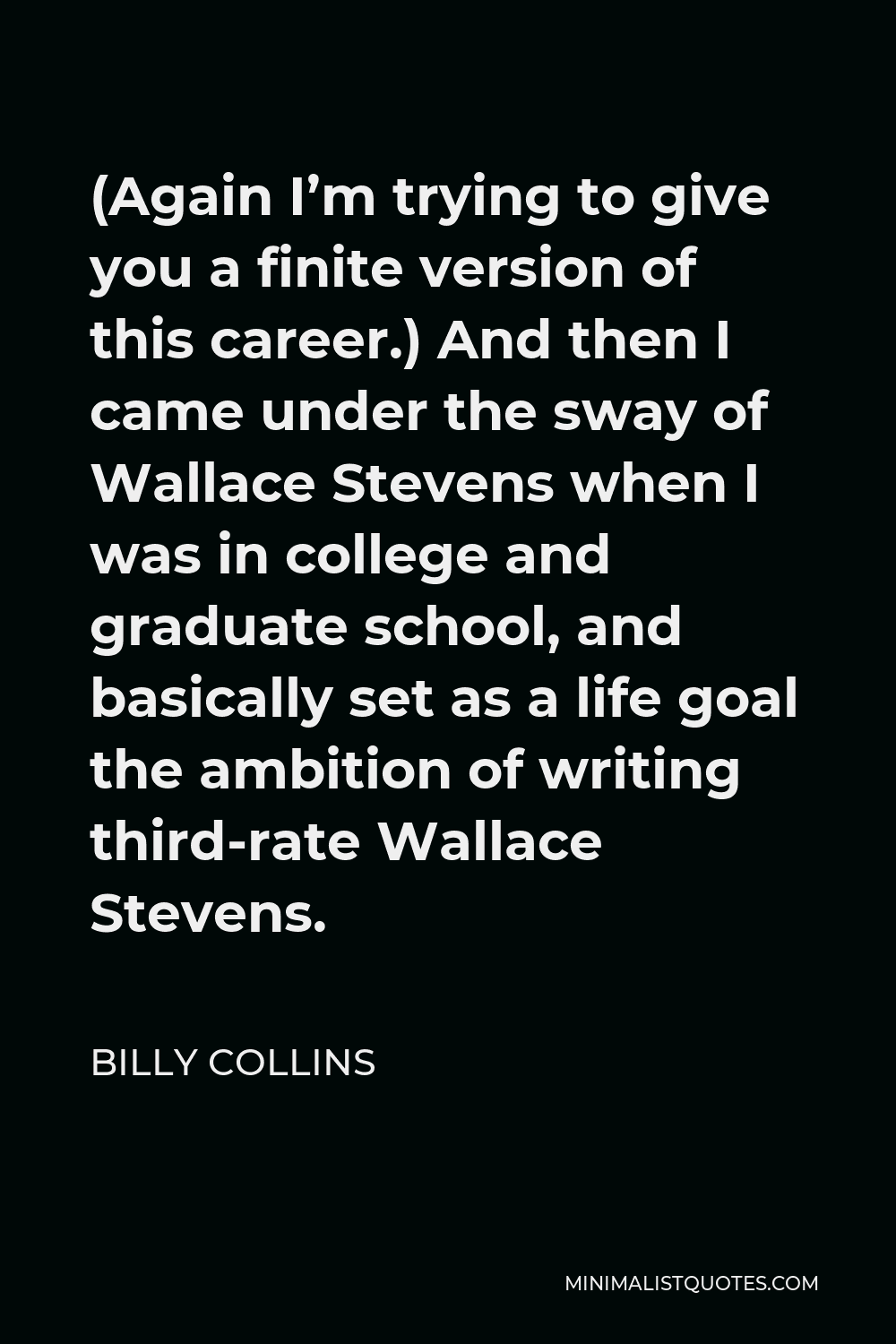
(Again I’m trying to give you a finite version of this career.) And then I came under the sway of Wallace Stevens when I was in college and graduate school, and basically set as a life goal the ambition of writing third-rate Wallace Stevens.
BILLY COLLINS -





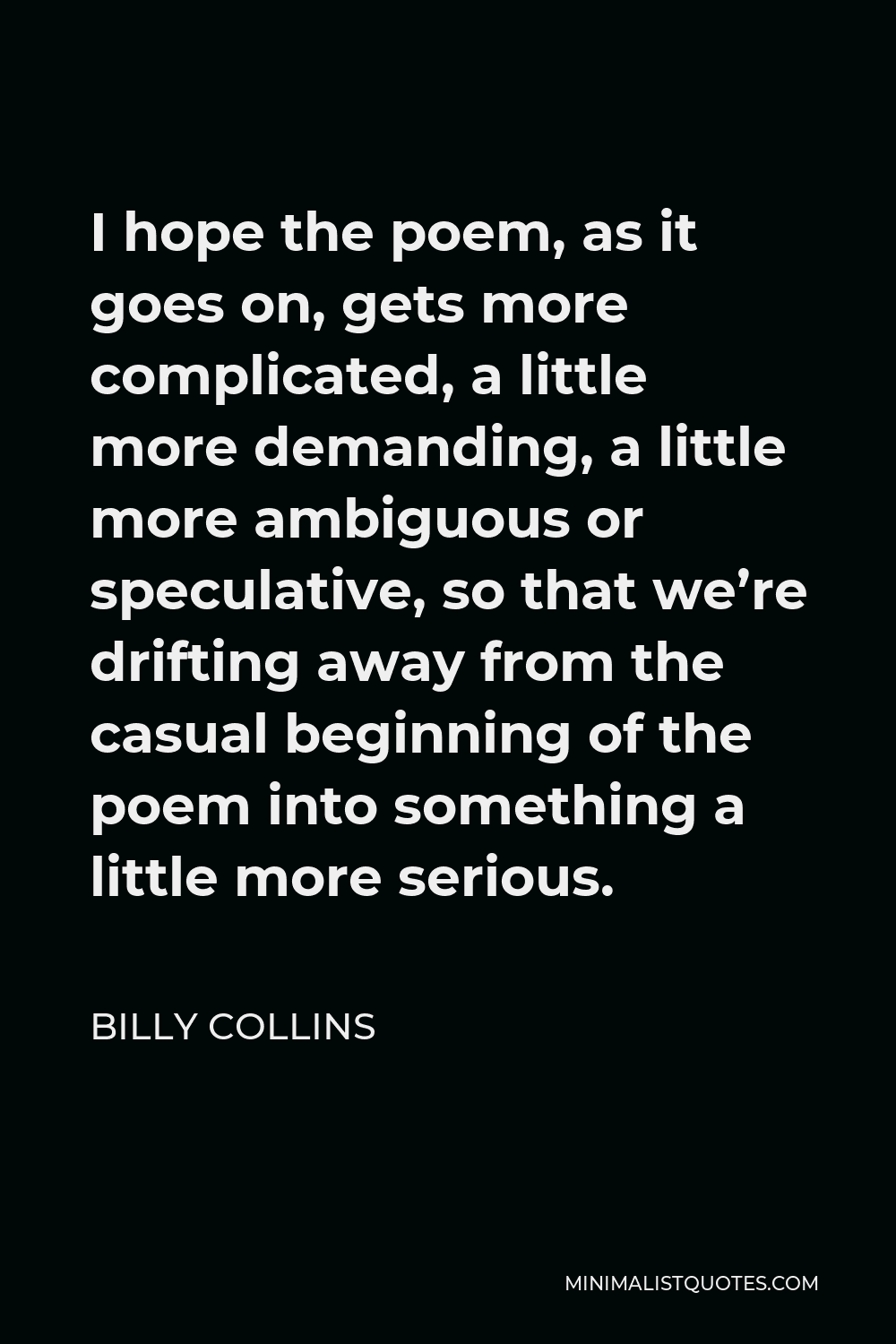
I hope the poem, as it goes on, gets more complicated, a little more demanding, a little more ambiguous or speculative, so that we’re drifting away from the casual beginning of the poem into something a little more serious.
BILLY COLLINS -





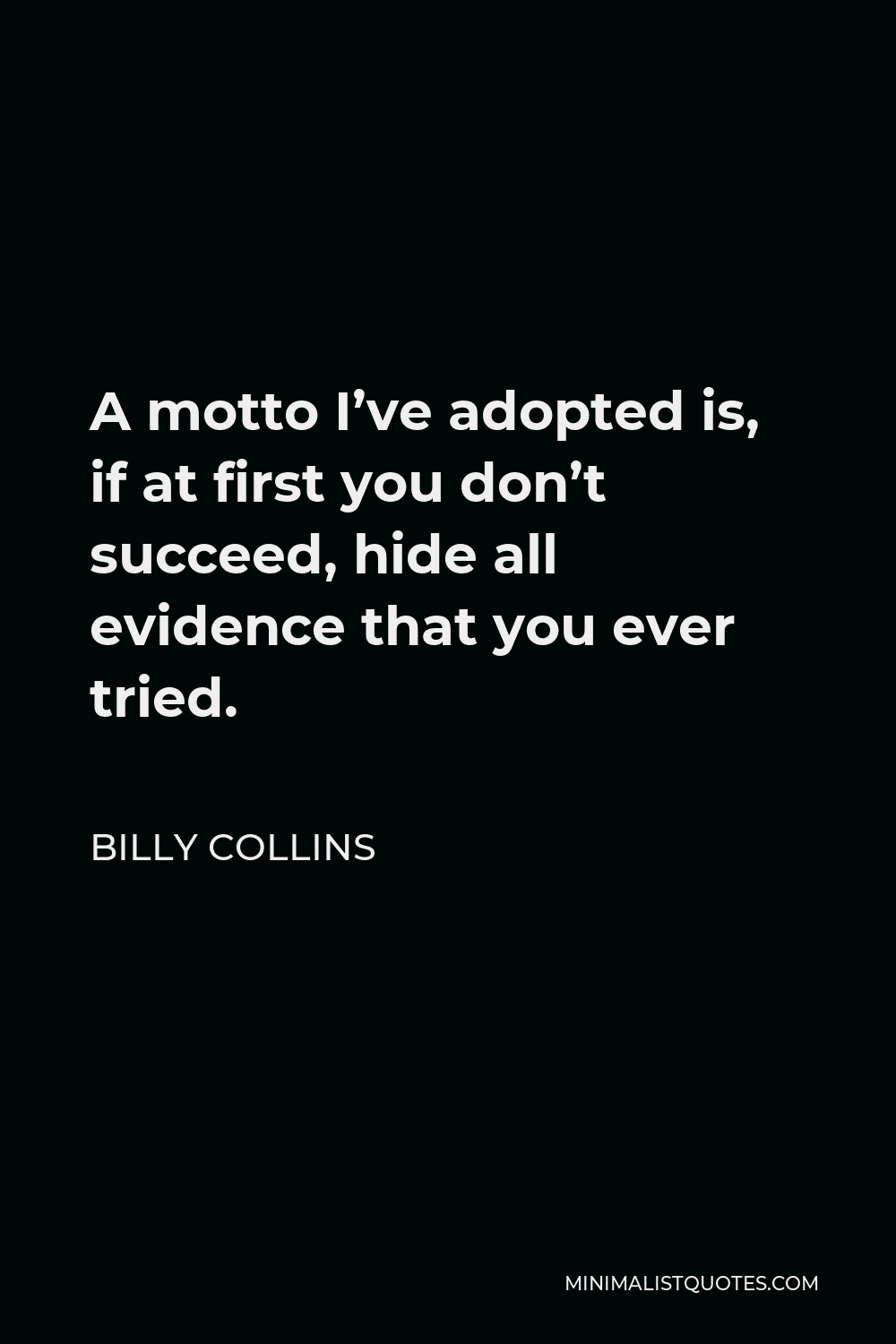
A motto I’ve adopted is, if at first you don’t succeed, hide all evidence that you ever tried.
BILLY COLLINS -





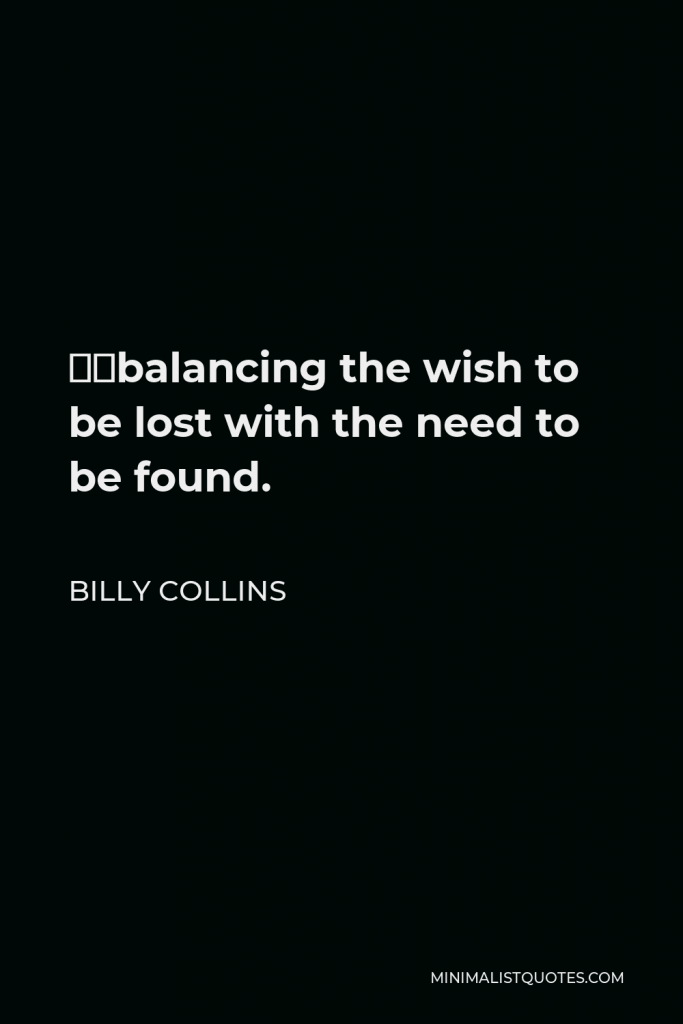

…balancing the wish to be lost with the need to be found.
BILLY COLLINS -





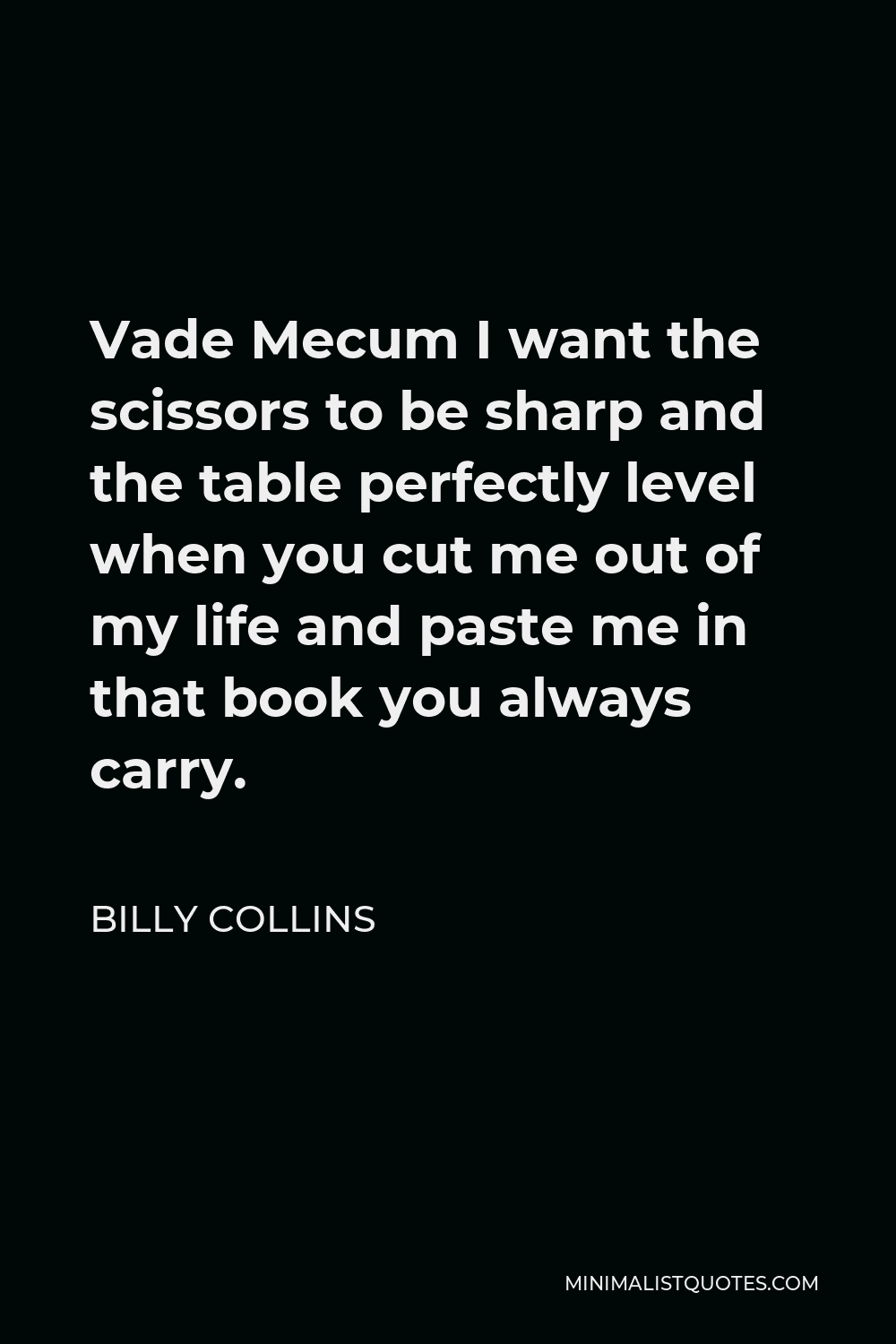
Vade Mecum I want the scissors to be sharp and the table perfectly level when you cut me out of my life and paste me in that book you always carry.
BILLY COLLINS -





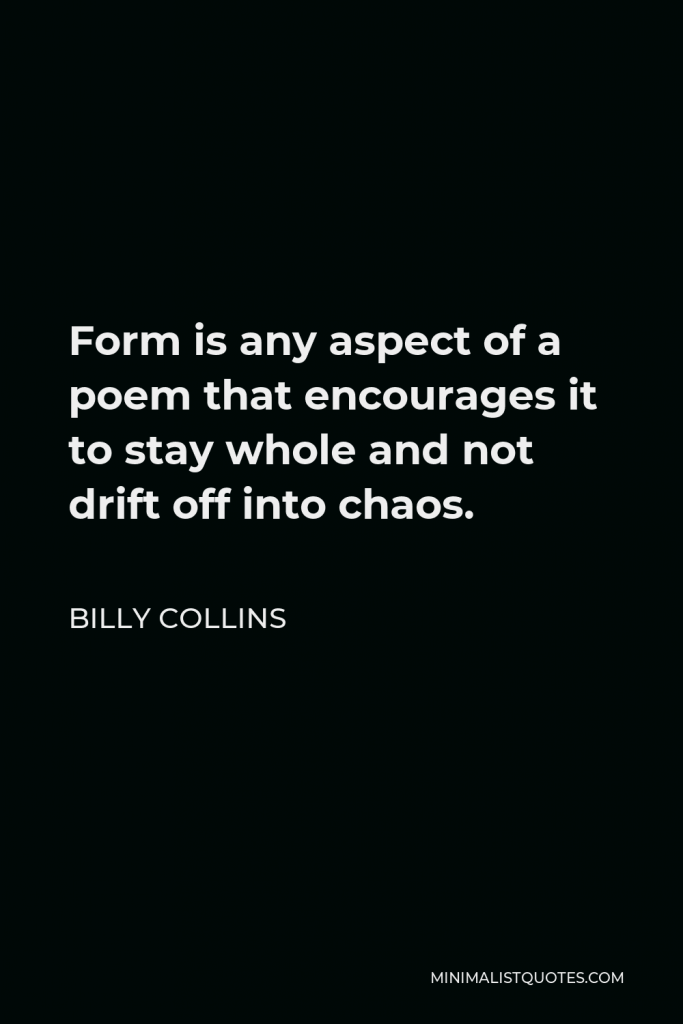

Form is any aspect of a poem that encourages it to stay whole and not drift off into chaos.
BILLY COLLINS -





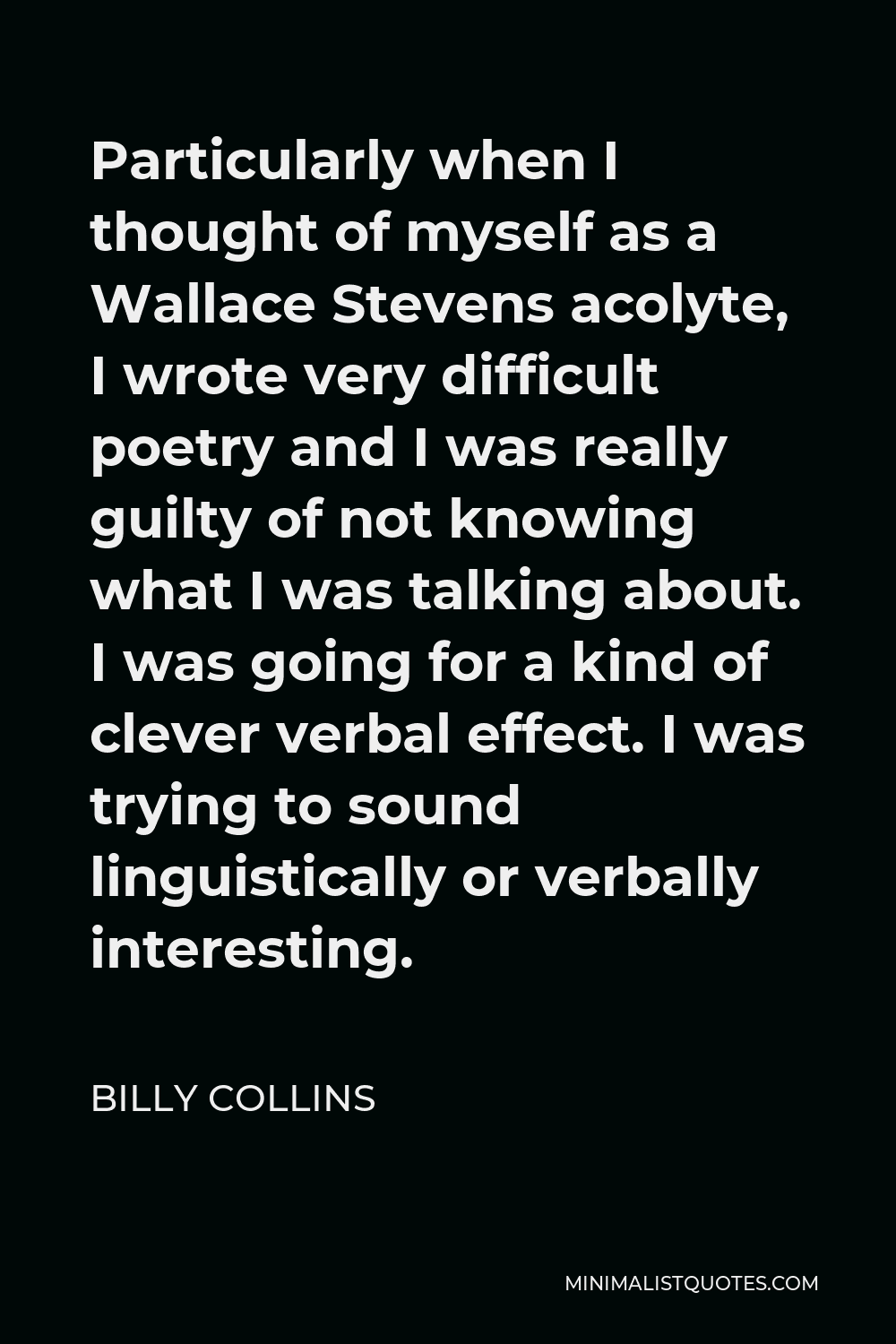
Particularly when I thought of myself as a Wallace Stevens acolyte, I wrote very difficult poetry and I was really guilty of not knowing what I was talking about. I was going for a kind of clever verbal effect. I was trying to sound linguistically or verbally interesting.
BILLY COLLINS -





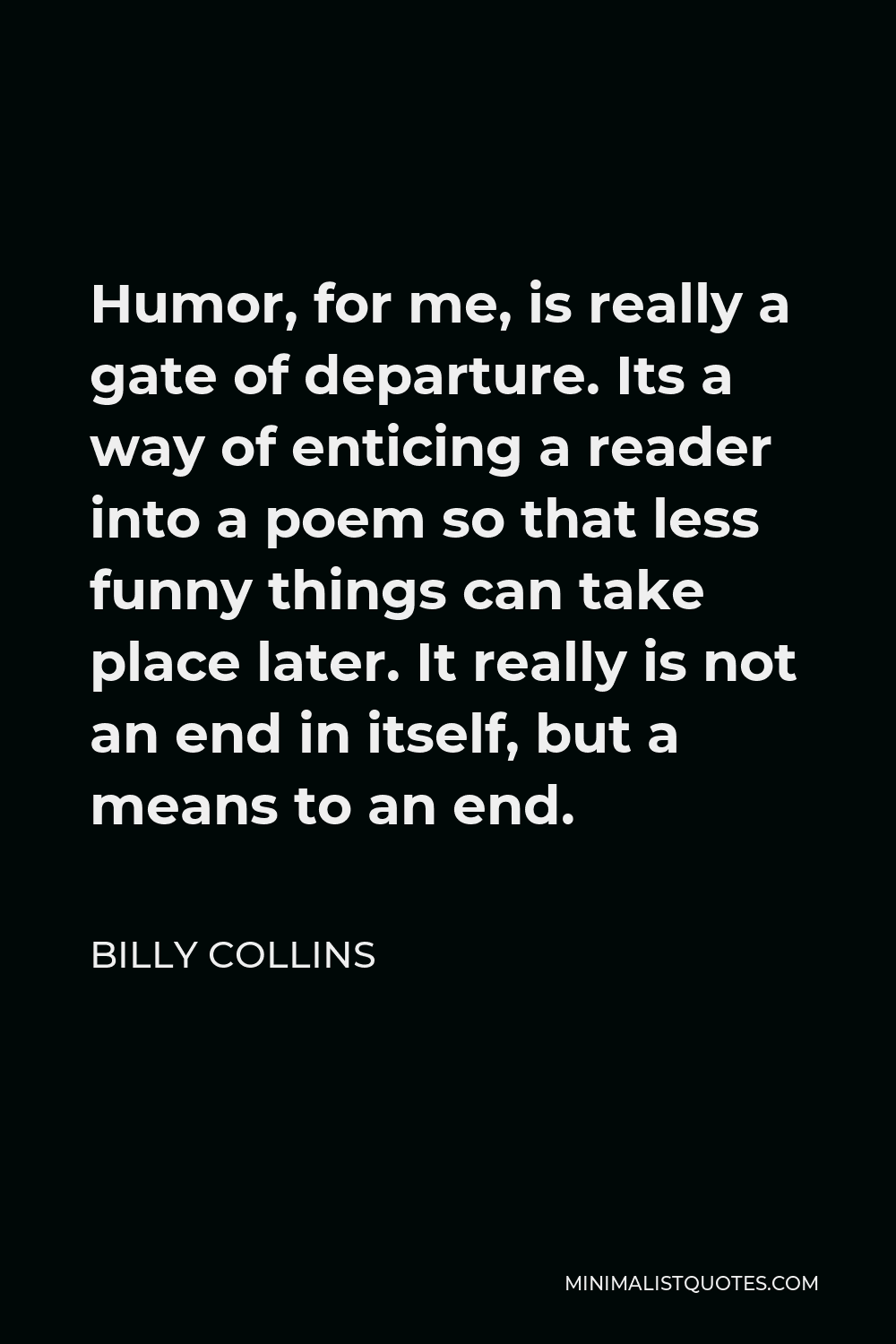
Humor, for me, is really a gate of departure. Its a way of enticing a reader into a poem so that less funny things can take place later. It really is not an end in itself, but a means to an end.
BILLY COLLINS -





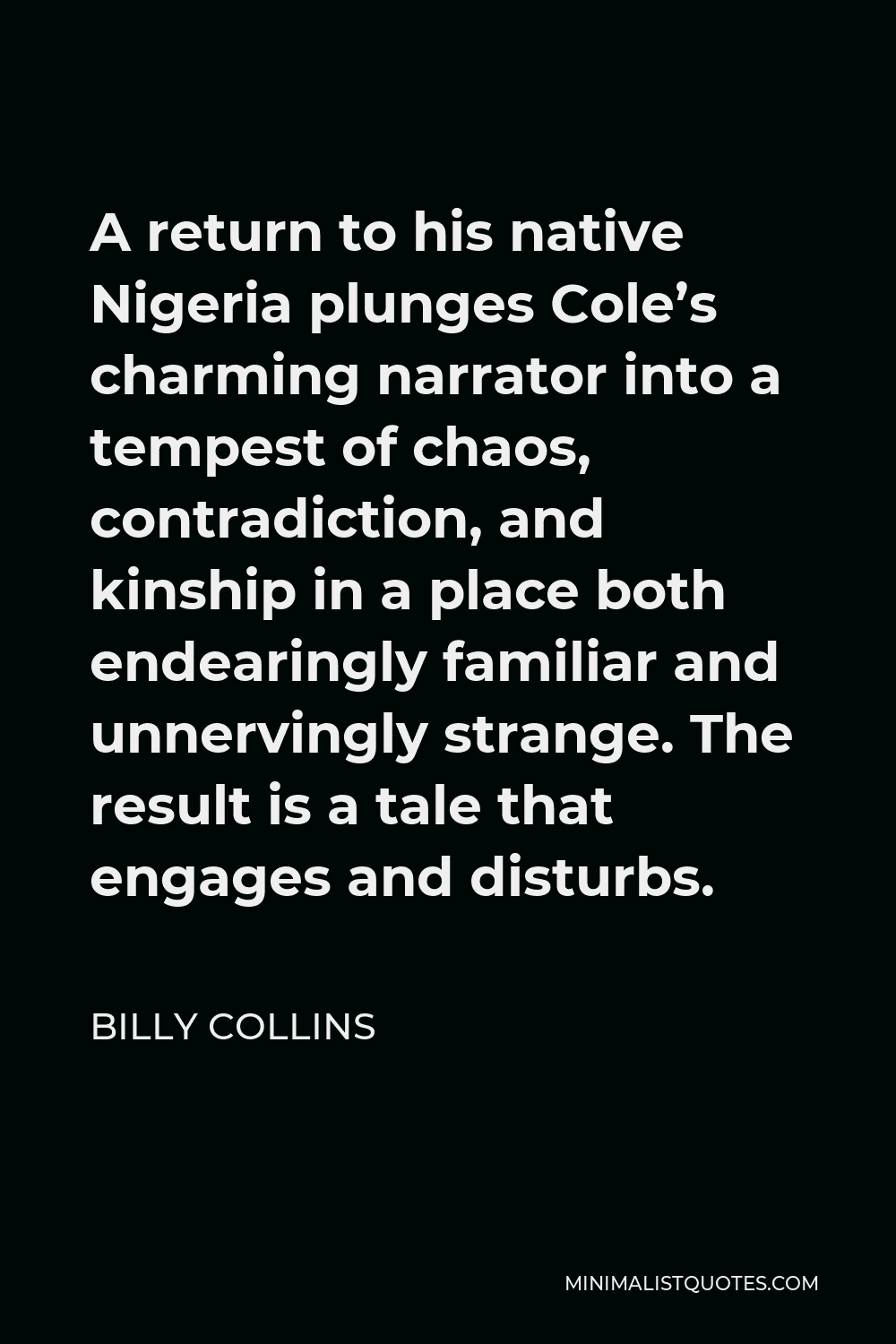
A return to his native Nigeria plunges Cole’s charming narrator into a tempest of chaos, contradiction, and kinship in a place both endearingly familiar and unnervingly strange. The result is a tale that engages and disturbs.
BILLY COLLINS -





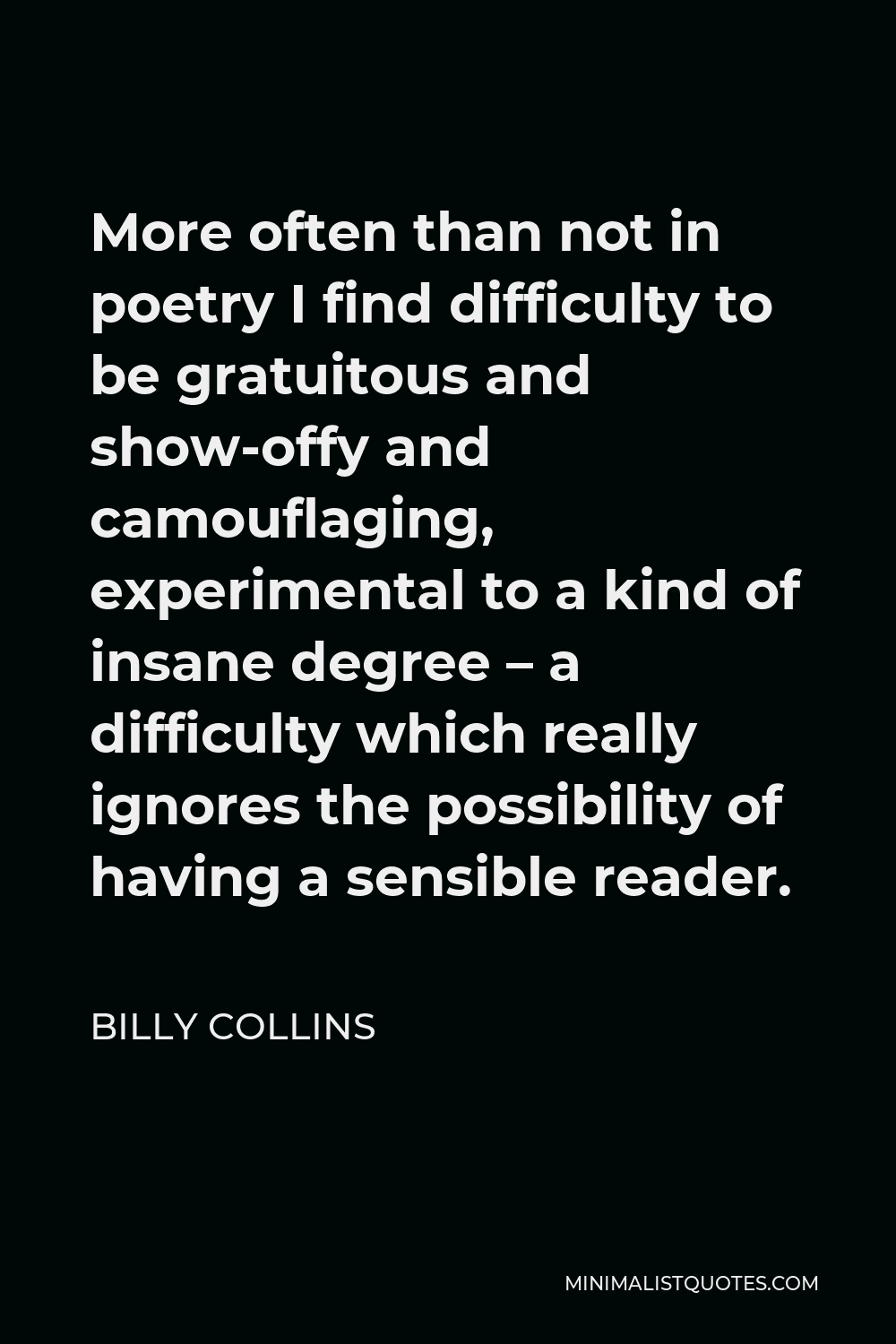
More often than not in poetry I find difficulty to be gratuitous and show-offy and camouflaging, experimental to a kind of insane degree – a difficulty which really ignores the possibility of having a sensible reader.
BILLY COLLINS -





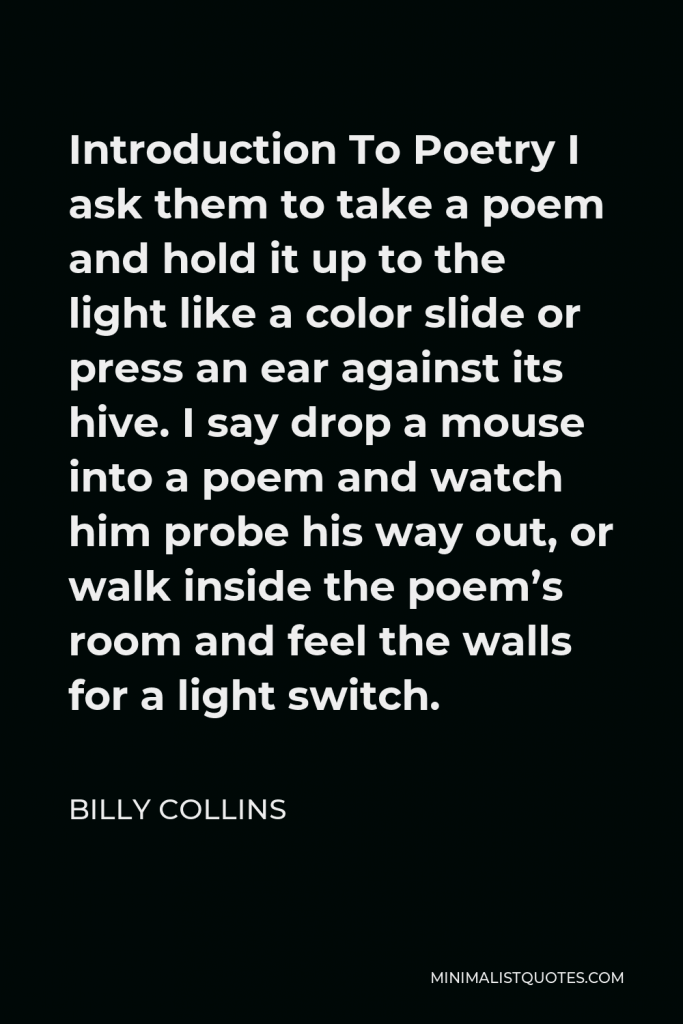

Introduction To Poetry I ask them to take a poem and hold it up to the light like a color slide or press an ear against its hive. I say drop a mouse into a poem and watch him probe his way out, or walk inside the poem’s room and feel the walls for a light switch.
BILLY COLLINS
